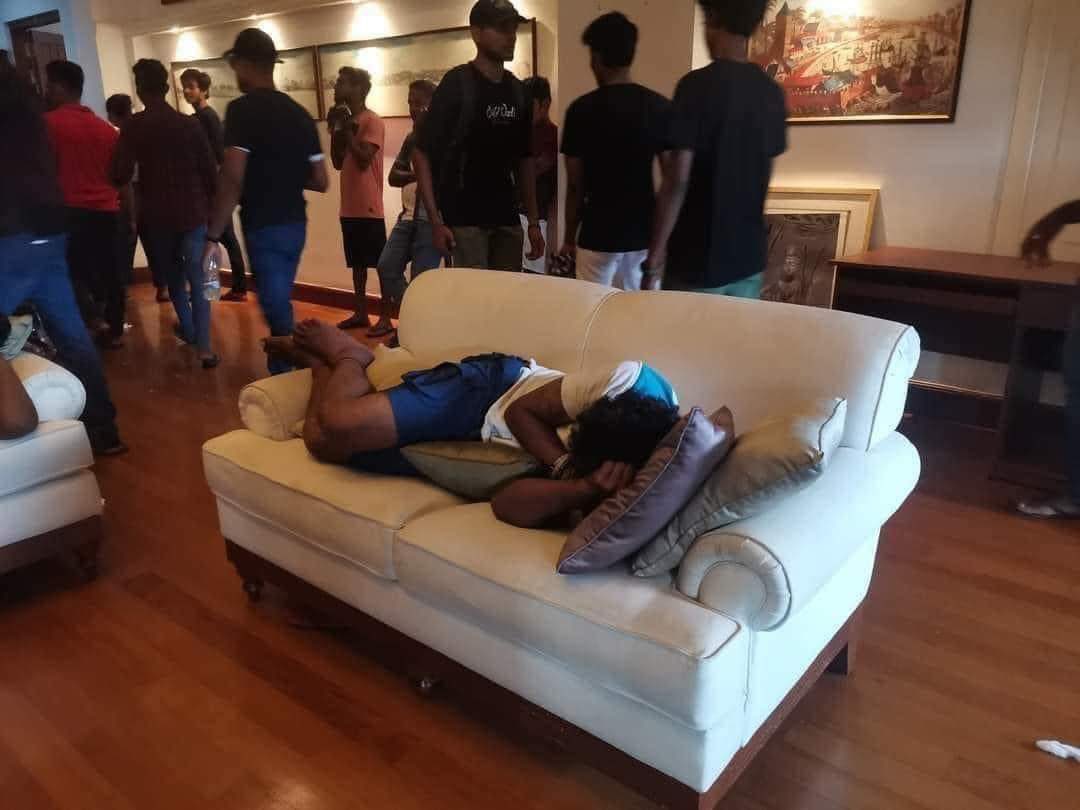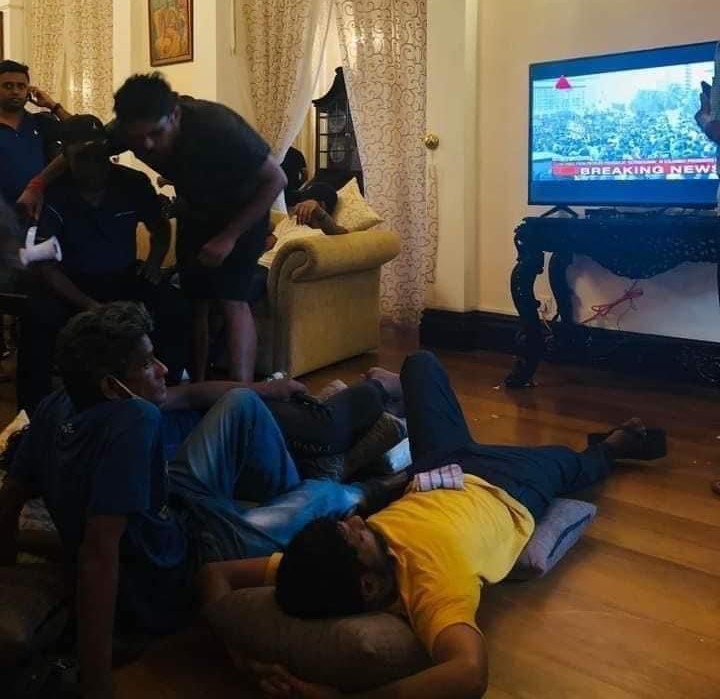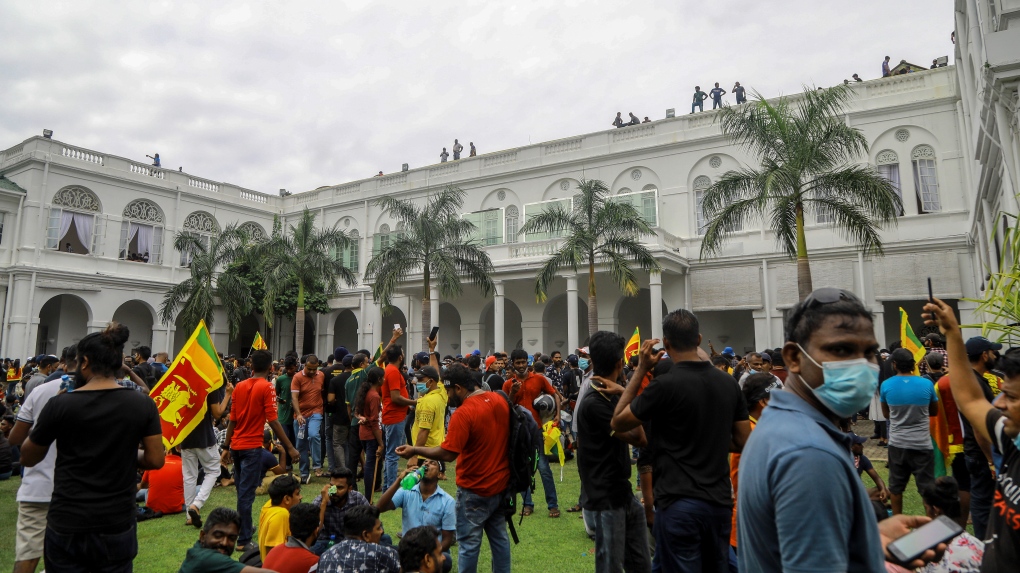Protesters say they will not leave the presidential and prime ministerial residences in Sri Lanka until both leaders resign. The move comes after protestors stormed the residences on Saturday.
President Gotabaya Rajapaksa said he will step down on 13 July, according to a statement made by the parliament's speaker on Saturday.
But the president himself has neither been seen nor has he made a public statement. A range of media speculate that he is currently aboard a Navy vessel in Sri Lankan waters after vacating the presidential palace on Friday as a precaution.
Thousands of people took to the streets and stormed Colombo, the commercial capital of Sri Lanka, on Saturday. The protestors demanded Rajapaksa's resignation following months of protests.

Protestors were struck by the luxury of the presidential palace. Credit: Twitter
Many Sri Lankans blame the president for mismanaging the country's economy, leading to shortages in food, fuel and medicine for several months.
After his private residence was set on fire, current Prime Minister Ranil Wikremisnghe also said that he would resign after Saturday's demonstrations.
Related News
- Boris Johnson to finally resign
- Belgian dilemma: Giving in to Iranian extortion or saving lives?
- Kremlin steps up internal repression
Yet the protestors are sceptical about what the leaders intend to do next. Political leaders held talks on Sunday to discuss a smooth transition of power.
The protest
The incredible proceedings on Saturday followed months of mostly peaceful protests in Sri Lanka. Crowds descended on the official residence of President Rajapaksa, chanting and waving the national flag, before breaking into the property.
Social media showed people entering the house and swimming in the president's pool. The opulent palace is a marked contrast to the living conditions of most of Sri Lanka's 22 million population.

Protestors watching the news in the presidential living room about their demonstration. Credit: Twitter
President Rajapaksa declared last week that the country had gone "bankrupt" as it is hit by the worst financial crisis it has seen for seven decades.
The British government on Tuesday advised against travelling to Sri Lanka except for essential purposes, due to the impact of the economic crisis on the country.

